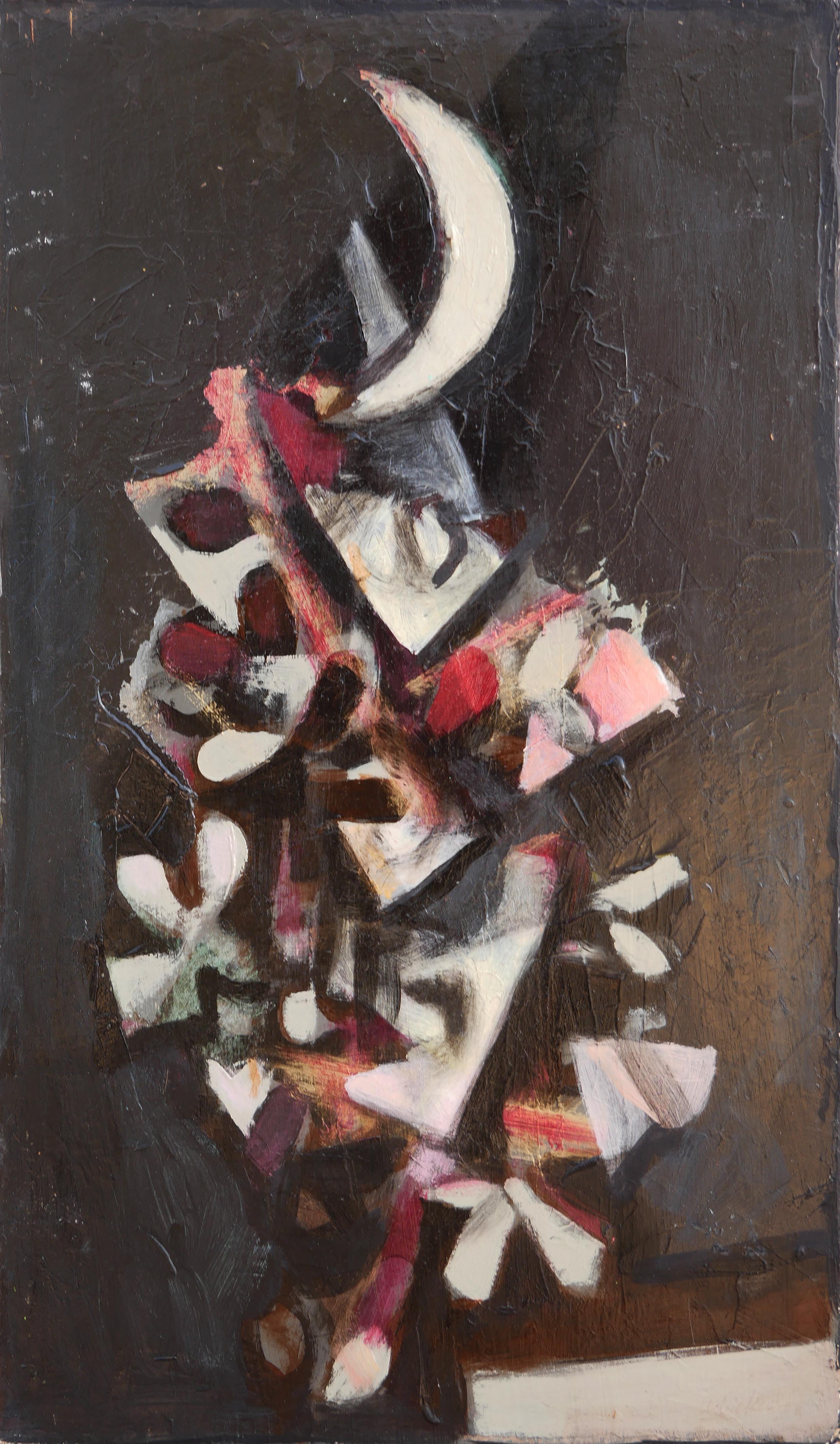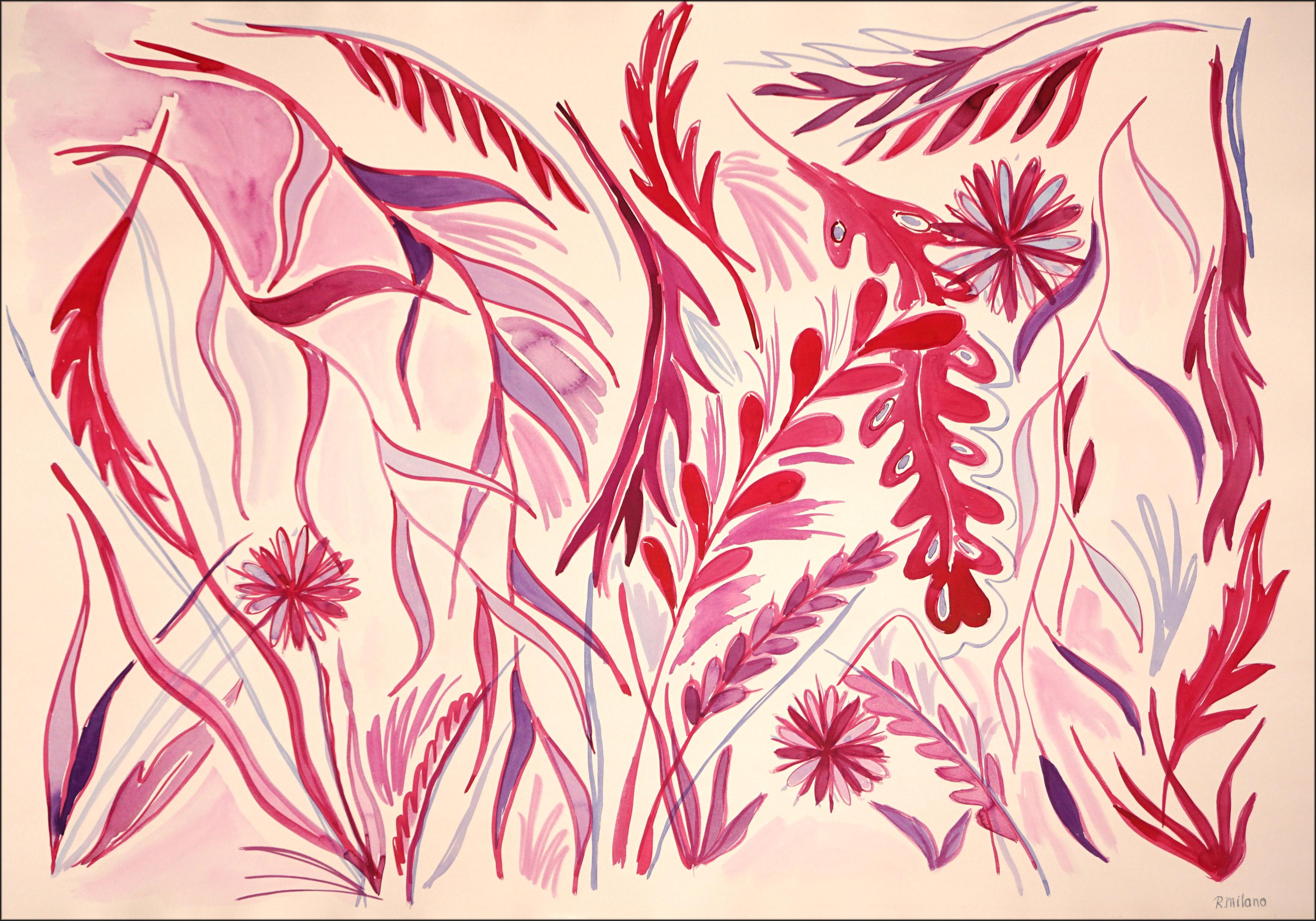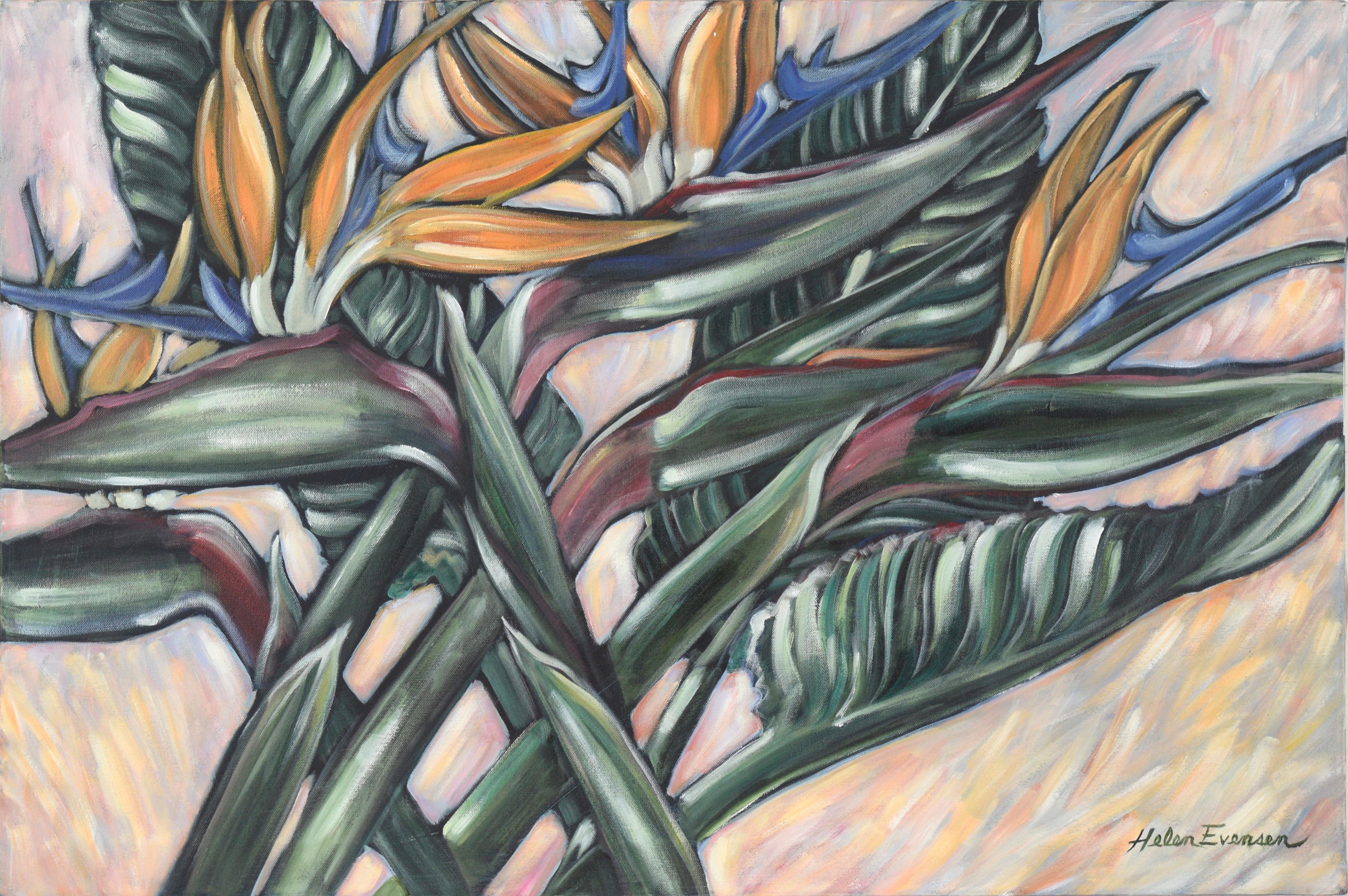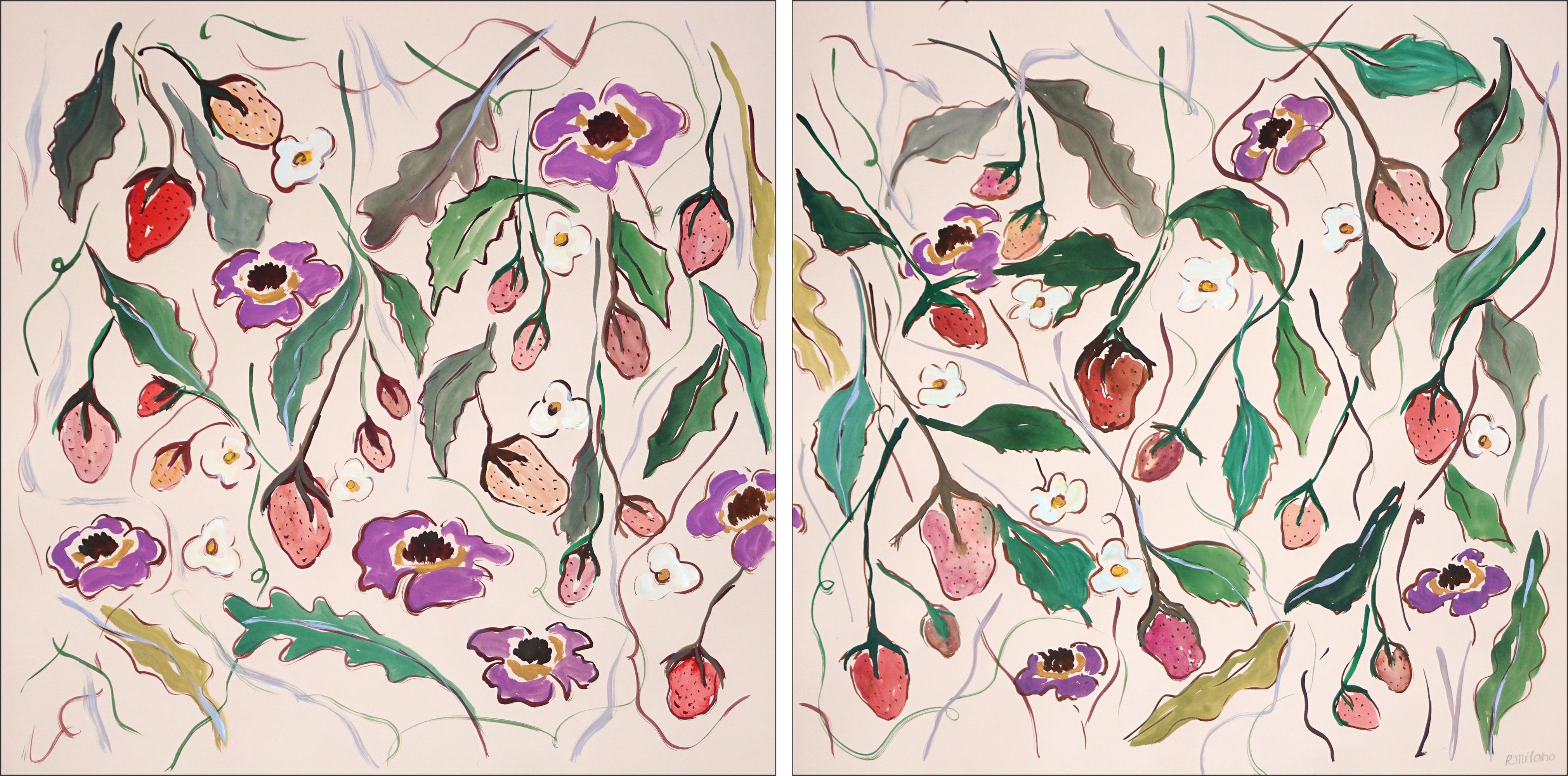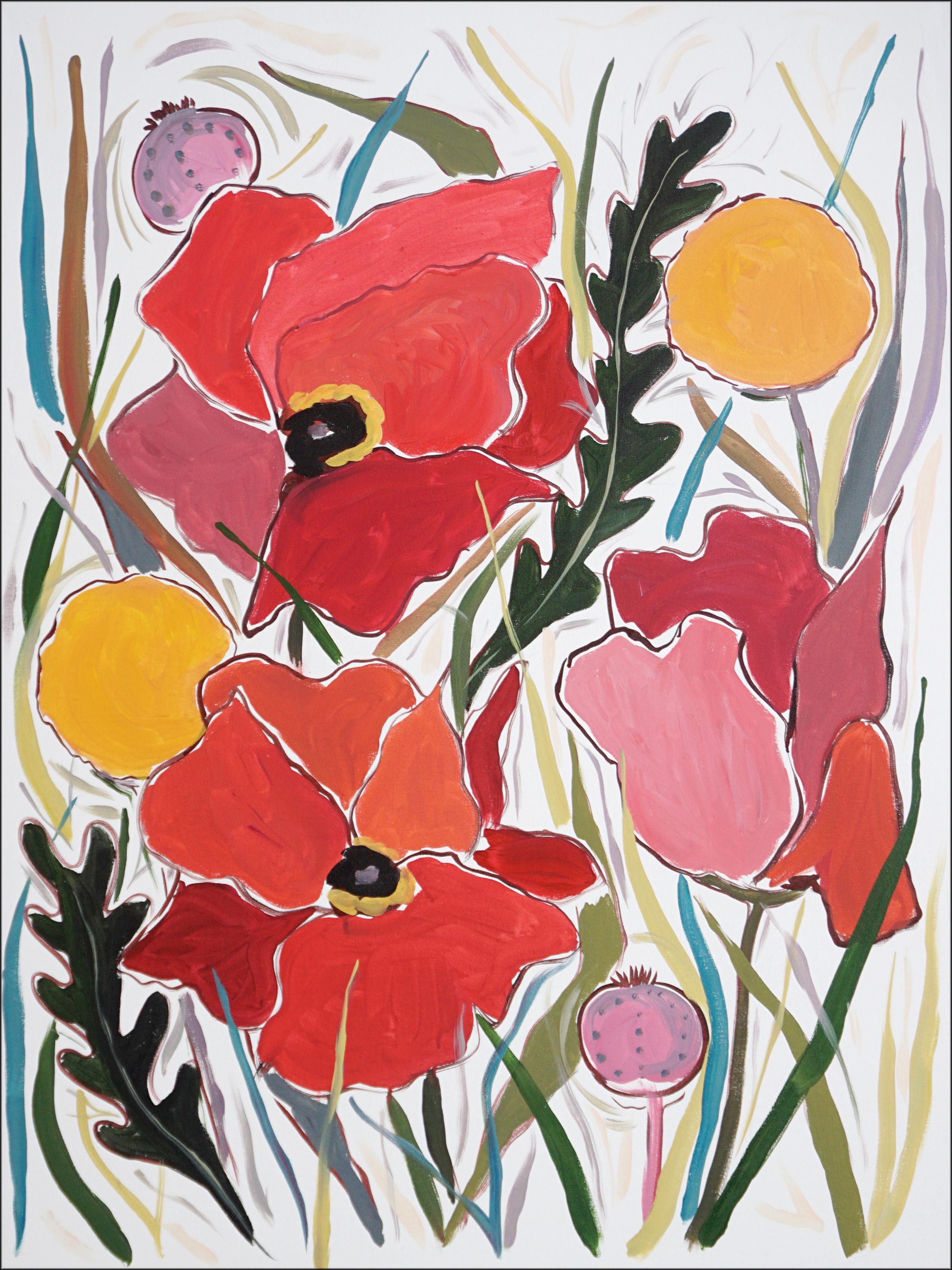Items Similar to Canadian Snowboarder
Want more images or videos?
Request additional images or videos from the seller
1 of 11
Joe McMackinCanadian Snowboarder2009
2009
About the Item
This is not one of McMackin's widely available reproductions. This is the actual oil painting of the Canadian Snowboarder. Arrives framed. One cannot appreciate this beautiful painting on a computer screen. In real life, it is fantastic.
Snowboarding is a recreational and competitive activity that involves descending a snow-covered surface while standing on a snowboard that is almost always attached to a rider's feet. It features in the Winter Olympic Games and Winter Paralympic Games.
Snowboarding was developed in the United States, inspired by skateboarding, sledding, surfing, and skiing. It became popular around the world, and was introduced as a Winter Olympic Sport at Nagano in 1991 and featured in the Winter Paralympics at Sochi in 2014.2 As of 2015, its popularity (as measured by equipment sales) in the United States peaked in 2007 and has been in a decline since.
The first snowboards were developed in 1965 when Sherman Poppen, an engineer in Muskegon, Michigan, invented a toy for his daughters by fastening two skis together and attaching a rope to one end so he would have some control as they stood on the board and glided downhill. Dubbed the "snurfer" (combining snow and surfer) by his wife Nancy, the toy proved so popular among his daughters' friends that Poppen licensed the idea to a manufacturer, Brunswick Corporation, that sold about a million snurfers over the next decade.5 And, in 1966 alone, over half a million snurfers were sold.
Modern snowboarding was pioneered by Tom Sims and Jake Burton Carpenter, who both contributed significant innovations and started influential companies. In February 1968, Poppen organized the first snurfing competition at a Michigan ski resort that attracted enthusiasts from all over the country.7 One of those early pioneers was Tom Sims, a devotee of skateboarding (a sport born in the 1950s when kids attached roller skate wheels to small boards that they steered by shifting their weight). In the 1960s, as an eighth grader in Haddonfield, New Jersey, Sims crafted a snowboard in his school shop class by gluing carpet to the top of a piece of wood and attaching aluminum sheeting to the bottom.8 He produced commercial snowboards in the mid-70s.9 Others experimented with board-on-snow configurations at this time, including Welsh skateboard enthusiasts Jon Roberts and Pete Matthews developed their own snowboards to use at their local dry ski slope.
Also during this same period, in 1977, Jake Burton Carpenter, a Vermont native who had enjoyed snurfing since the age of 14, impressed the crowd at a Michigan snurfing competition with bindings he had designed to secure his feet to the board. That same year, he founded Burton Snowboards in Londonderry, Vermont.12 The "snowboards" were made of wooden planks that were flexible and had water ski foot traps. Very few people picked up snowboarding because the price of the board was considered too high at $38 and were not allowed on many ski hills, but eventually Burton would become the biggest snowboarding company in the business.13 Burton's early designs for boards with bindings became the dominant features in snowboarding.
The first competitions to offer prize money were the National Snurfing Championship, held at Muskegon State Park in Muskegon, Michigan.14 In 1979, Jake Burton Carpenter came from Vermont to compete with a snowboard of his own design. There were protests about Jake entering with a non-snurfer board. Paul Graves, and others, advocated that Jake be allowed to race. A "modified" "Open" division was created and won by Jake as the sole entrant. That race was considered the first competition for snowboards and is the start of what became competitive snowboarding. Ken Kampenga, John Asmussen and Jim Trim placed first, second and third respectively in the Standard competition with best two combined times of 24.71, 25.02 and 25.41; and Jake Carpenter won prize money as the sole entrant in the "open" division with a time of 26.35.15 In 1980 the event moved to Pando Winter Sports Park near Grand Rapids, Michigan because of a lack of snow that year at the original venue.
In the early 1980s, Aleksey Ostatnigrosh and Alexei Melnikov, two Snurfers from the Soviet Union, patented design changes to the Snurfer to allow jumping by attaching a bungee cord, a single footed binding to the Snurfer tail, and a two-foot binding design for improved control.
As snowboarding became more popular in the 1970s and 1980s, pioneers such as Dimitrije Milovich (founder of Winterstick out of Salt Lake City, UT), Jake Burton Carpenter (founder of Burton Snowboards from Londonderry, Vermont), Tom Sims (founder of Sims Snowboards), David Kemper (founder of Kemper Snowboards) and Mike Olson (founder of Gnu Snowboards) came up with new designs for boards and mechanisms that slowly developed into the snowboards and other related equipment. From these developments, modern snowboarding equipment usually consists of a snowboard with specialized bindings and boots.
In April 1981, the "King of the Mountain" Snowboard competition was held at Ski Cooper in Colorado.24 Tom Sims along with an assortment of other snowboarders of the time were present.25 One entrant showed up on a homemade snowboard with a formica bottom that turned out to not slide so well on the snow.
In 1982, the first USA National Snowboard race was held near Woodstock, Vermont, at Suicide Six. The race, organized by Graves, was won by Burton's first team rider Doug Bouton.
In 1983, the first World Championship halfpipe competition was held at Soda Springs, California. Tom Sims, founder of Sims Snowboards, organized the event with the help of Mike Chantry, a snowboard instructor at Soda Springs.
In 1985, the first World Cup was held in Zürs, Austria, further cementing snowboarding's recognition as an official international competitive sport.
In 1990, the International Snowboard Federation (ISF) was founded to provide universal contest regulations.29 In addition, the United States of America Snowboard Association (USASA) provides instructing guidelines and runs snowboard competitions in the U.S. today, high-profile snowboarding events like the Winter X Games, Air & Style, US Open, Olympic Games and other events are broadcast worldwide. Many alpine resorts have terrain parks.
At the 1998 Winter Olympic Games in Nagano, Japan, Snowboarding became an official Olympic event.30 France's Karine Ruby was the first ever to win an Olympic gold medal for Woman's Snowboarding at the 1998 Olympics, while Canadian Ross Rebagliati31 was the first ever to win an Olympic gold medal for Men's Snowboarding.
Initially, ski areas adopted the sport at a much slower pace than the winter sports public. Indeed, for many years, there was animosity between skiers and snowboarders, which led to an ongoing skier vs snowboarder feud.32 Early snowboards were banned from the slopes by park officials. For several years snowboarders would have to take a small skills assessment prior to being allowed to ride the chairlifts. It was thought that an unskilled snowboarder would wipe the snow off the mountain. In 1985, only seven percent of U.S. ski areas allowed snowboarding,33 with a similar proportion in Europe. As equipment and skills improved, gradually snowboarding became more accepted. In 1990, most major ski areas had separate slopes for snowboarders. Now, approximately 97% of all ski areas in North America and Europe allow snowboarding, and more than half have jumps, rails and half pipes.
In 2004, snowboarding had 6.6 million active participants.34 An industry spokesman said that "twelve year-olds are out-riding adults." The same article said that most snowboarders are 18–24 years old and that women constitute 25% of participants.
There were 8.2 million snowboarders in the US and Canada for the 2009–2010 season. There was a 10% increase over the previous season, accounting for more than 30% of all snow sports participants.
On 2 May 2012, the International Paralympic Committee announced that adaptive snowboarding (dubbed "para-snowboarding") would debut as a men's and women's medal event in the 2014 Paralympic Winter Games taking place in Sochi, Russia.
- Creator:Joe McMackin (1981, Canadian)
- Creation Year:2009
- Dimensions:Height: 18 in (45.72 cm)Width: 24 in (60.96 cm)
- More Editions & Sizes:NonePrice: $1,650
- Medium:
- Movement & Style:
- Period:
- Condition:There is a scratch on the bottom right of the frame. See all photos.
- Gallery Location:Boca Raton, FL
- Reference Number:1stDibs: LU50412609832
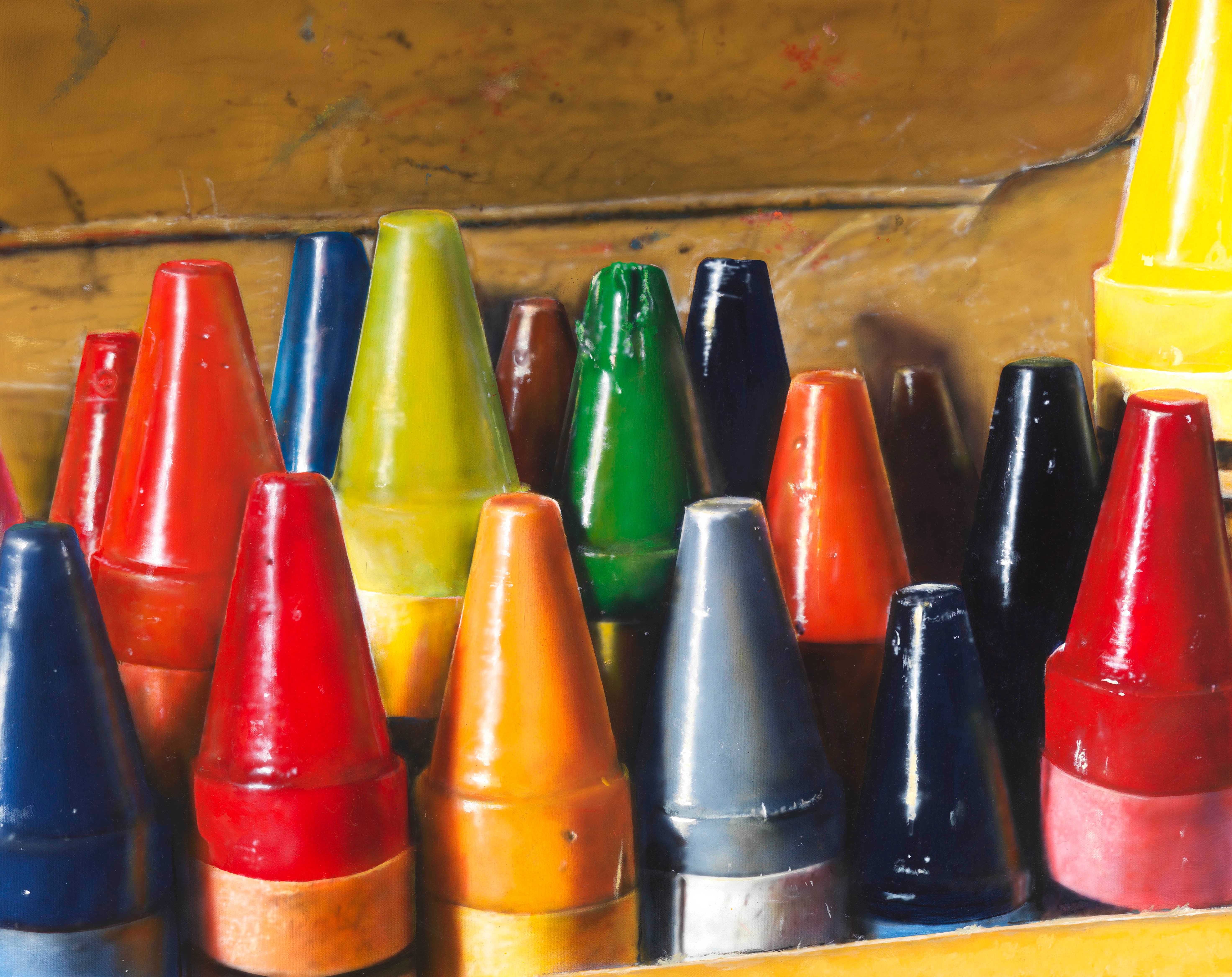
About the Seller
5.0
Vetted Seller
These experienced sellers undergo a comprehensive evaluation by our team of in-house experts.
Established in 1985
1stDibs seller since 2014
157 sales on 1stDibs
Typical response time: <1 hour
- ShippingRetrieving quote...Ships From: Boca Raton, FL
- Return PolicyA return for this item may be initiated within 60 days of delivery.
More From This SellerView All
- Set of Four Original Oil Paintings of Kennebunkport Street SignsBy Mark SchiffLocated in Boca Raton, FLHave you ever heard of the Kennebunkport street signs? If the answer to that is no, then you might as well move on to the next painting. But if you are a Maine lover, you might lov...Category
1990s Photorealist Landscape Paintings
MaterialsOil, Canvas
- A Time For SentimentLocated in Boca Raton, FLThis original oil painting by famed Canadian realist Carol Soo Lum cannot be appreciated on a computer screen. In real life, it is amazing.Category
Early 2000s Modern Interior Paintings
MaterialsAcrylic
- Hignett's -- Original Oil Painting -- Please watch attached videoBy Cesar J. SantanderLocated in Boca Raton, FLWe are a 1stdibs Platinum Seller with 100% 5-star reviews. Cesar Santander is world renowned for his photorealist oil paintings depicting Americana. One rarely finds his original oil paintings for sale, as they each take months to complete and there is a wait list of collectors looking for them. One cannot appreciate this painting on a computer screen; in real life, it is absolutely amazing. Because you cannot appreciate it on a computer screen, our gallery has a unique policy. When purchasing from us, the buyer has sixty days to determine if they want to keep the artwork. If not, the buyer returns to piece to us for full refund, and we pay the shipping both ways! A collector should consider several factors when deciding from whom to purchase artwork online. Check the location of the seller. When one buys from a foreign seller, one also has to consider the problems of getting the piece through Customs. There are often delays and considerable fees to pay in order to import the item. When purchasing from us, we ship the same day and you receive it via FedEx the next day, no problems or hassles. When one purchases from an auction house, one pays a buyer’s premium of anywhere from 23% to 28% over the “hammer price”. So when one “wins” an auction for $20,000, the actual price paid is more like $25,000. By contrast, when purchasing from us, the price agreed to is the price paid by the buyer, no hidden fees. Secondly, when one purchases from an auction house, the buyer pays the packing and shipping fee, which are usually exorbitant. By contrast, when purchasing from us, the price includes packing and shipping. Thirdly, when one purchases from an auction house, the sale is final. If one receives the piece and is not 100% satisfied with it, there is nothing the buyer can do about it. They are stuck with it. By contrast, when purchasing from us, the buyer has sixty days to determine if they want to keep it. If not, the buyer returns to piece to us for full refund, and we pay the shipping both ways. About Cesar Santander Exhibitions of Santander’s work have taken place at Arcadia Fine Arts in New York, Rehs Gallery in New York, Douglas Albert Gallery in State College, Huckleberry Fine Art in Rockville, Bella Arte Gallery in Midlothian, Chasen Galleries in Richmond, Galleria Portofino in Orlando, Pop Gallery in Lake Buena Vista, Sher Gallery in Hallandale, Millionaire Gallery in Key West, Effusion Gallery in Miami Beach, Creative Framing in Surfside, Around the Edge in West Palm Beach, Art & Framing Warehouse in Boca Raton, Gallery Framers in Boca Raton, Frame World in Boca Raton, Russeck Gallery in Palm Beach, Gallery Biba in Palm Beach , Black Pearl Fine Art in Delray Beah, Michael Murphy Gallery in Tampa, Gallery One in Mentor, Evan Lurie Gallery in Carmel, Atlas Galleries in Chicago, Hoypoloi in O'Hare International Airport, 1200 Images in Omaha, Gallery Rouge in Denver, Andrea Smith...Category
2010s Contemporary Interior Paintings
MaterialsCanvas, Acrylic
- Candyland Two Original Oil PaintingsBy Ralph StearnsLocated in Boca Raton, FLTwo paintings, each one is 32″ x 48″. What a gift for the Candyland aficionado in the family. One cannot appreciate these paintings on a computer screen; in real life, they are abs...Category
Early 2000s Contemporary Interior Paintings
MaterialsCanvas, Oil
- Haldeon Diner 40″ x 60″By Randy FordLocated in Boca Raton, FLOne cannot appreciate this painting on a computer screen; in real life, it is absolutely amazing. Because you cannot appreciate it on a computer screen, our gallery has a unique policy. When purchasing from us, the buyer has sixty days to determine if they want to keep the artwork. If not, the buyer returns the piece to us for full refund, and we pay the shipping both ways! A collector should consider several factors when deciding from whom to purchase artwork online. Check the location of the seller. When one buys from a foreign seller, one also has to consider the problems of getting the piece through Customs. There are often delays and considerable fees to pay in order to import the item. When purchasing from us, we ship the same day and you receive it via FedEx the next day, no problems or hassles. When one purchases from an auction house, one pays a buyer’s premium of anywhere from 23% to 28% over the “hammer price”. So when one “wins” an auction for $20,000, the actual price paid is more like $25,000. By contrast, when purchasing from us, the price agreed to is the price paid by the buyer, no hidden fees. Secondly, when one purchases from an auction house, the buyer pays the packing and shipping fee, which are usually exorbitant. By contrast, when purchasing from us, the price includes packing and shipping. Thirdly, when one purchases from an auction house, the sale is final. If one receives the piece and is not 100% satisfied with it, there is nothing the buyer can do about it. They are stuck with it. By contrast, when purchasing from us, the buyer has sixty days to determine if they want to keep it. If not, the buyer returns to piece to us for full refund, and we pay the shipping both ways. About Randy Ford Exhibitions of Ford’s work have taken place at Art Karlsruhe, Karlsruhe, Germany, Editions/Line Gallery, Marlton, NJ, Edward Hopper House Museum, Nyack, NY, Galería artelibre Zaragoza,Spain, Hughes Gallery, Boca Grande, FL, J. Willott Gallery, Palm Desert, CA, Jones & Terwilliger Galleries, Palm Desert, CA, Kenise Barnes Fine Art, Larchmont, NY, M.A Doran Gallery, Tulsa, OK, Plus One Gallery, London, England, Rosenfeld Gallery, Philadelphia, PA, Sherry French Gallery, New York, NY, Stricoff Fine Art, New York, NY, Trudy Labell Fine Art, Naples FL...Category
2010s Photorealist Interior Paintings
MaterialsOil
- GourdsBy Mark SchiffLocated in Boca Raton, FLGourds by Mark Schiff We guarantee that you will love this painting. If not, you can return it for a complete refund, no questions asked.Category
Early 2000s American Realist Still-life Paintings
MaterialsCanvas, Oil
You May Also Like
- "Abstract Leaves, Moon Against Black" Modern Abstract Cubist Still Life PaintingLocated in Houston, TXModern Cubist inspired still life night scene painting by Houston, TX artist David Adickes. The work features cream, red, and grey abstract falling leaves set against a black backgro...Category
Late 20th Century Modern Still-life Paintings
MaterialsAcrylic
- The Red Garden, Illustration Style in Red Tones, Wild Dandelion, Pink LeavesLocated in Barcelona, ES"The Red Garden" is an abstract expressionist painting by Romina Milano where a dance of black gestures unfolds across colorful brushstrokes infused with raw emotion. Romina Milano...Category
2010s Modern Landscape Paintings
MaterialsInk, Acrylic, Watercolor
- Modernist Tropical Birds of Paradise Still Life PaintingLocated in Soquel, CAModernist tropical flower still life of Birds of Paradise (Strelitzia) painting in acrylic on canvas — “Five Birds” Striking modernist style still life of tropical Bird of Paradise...Category
Early 2000s Modern Still-life Paintings
MaterialsCanvas, Acrylic, Stretcher Bars
- Strawberry Fields Diptych, Illustration Style Blooming Wild Flowers, Red, GreenLocated in Barcelona, ES"Strawberry Fields" is an illustration style painting by Romina Milano. Romina Milano is an Italian artist renowned for her paintings that are primarily composed of strong gestures,...Category
2010s Modern Landscape Paintings
MaterialsAcrylic, Watercolor, Ink
- Red Giant Poppies and Yellow Craspedia Flowers on Canvas, Illustration PrairieLocated in Barcelona, ES"Giant Poppies" is an illustration style painting by Romina Milano where a dance of gestures unfolds across colorful landscapes. Romina Milano is an Italian artist renowned for her ...Category
2010s Modern Landscape Paintings
MaterialsInk, Acrylic, Watercolor, Canvas, Linen
- American Modern Artist Jack Hooper "Trees and Bulls" Abstract Landscape PaintingBy Jack HooperLocated in Arp, TXJack Hooper "Trees and Bulls" - Mexico 1-12-1993 Acrylic and conte crayon on rag paper 30.75"x21.25" unframed Signed and dated in pencil lower right *Custo...Category
1990s American Modern Landscape Paintings
MaterialsConté, Acrylic, Paper
